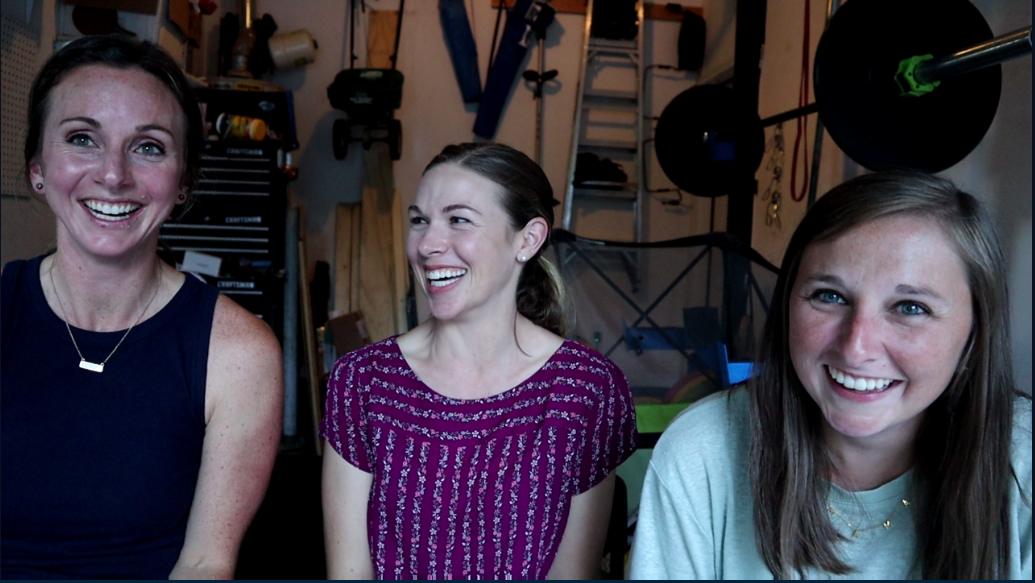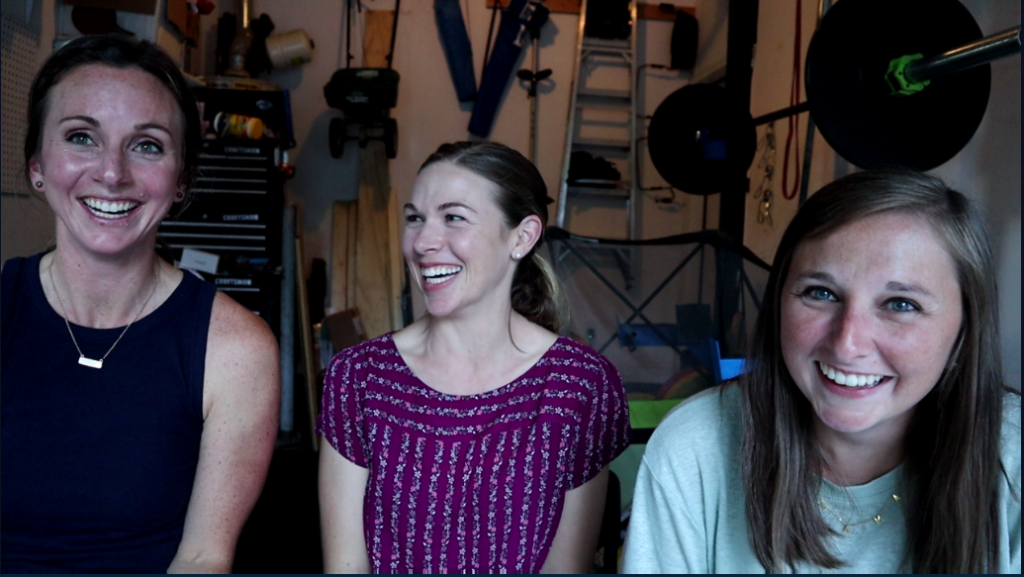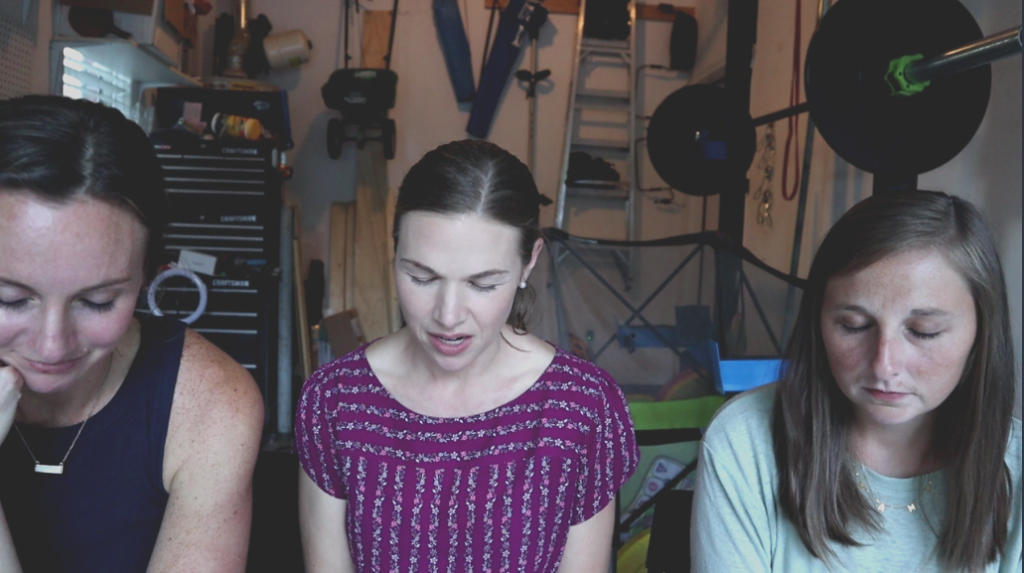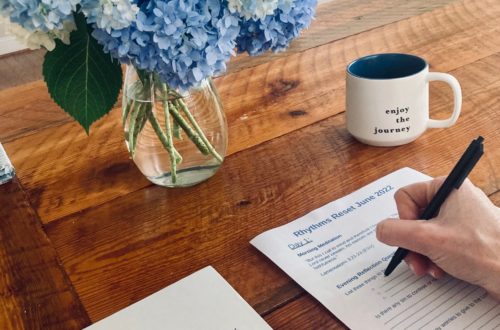
How To Start A DNA Group: Women’s Bible Study

I’ve talked to many women over the years about the best way to study the Bible in community. Here’s how to get started with A DNA Group: Women’s Bible Study.
What Is A DNA Group?
The “DNA” group model was created by a pastor named Robby Gallaty. You can read his book, “Replicate: How to Create A Culture Of Disciple-Making Right Where You Are”, to get the full and specific model that he originally created. We have modified the process to adapt to the needs of our group.
DNA stands for Discipleship, Nurture, and Accountability:
- Discipleship: Studying the Bible and growing in our walk with Christ
- Nurture: Caring for one another
- Accountability: Holding each other accountable for what we say we’ll do each week
Discipleship

Let’s start by talking about how we study the Bible and grow in our walk with Jesus together. Since we started meeting 1.5 years ago, we have read through six books of the Bible. Gallaty’s model involves reading the Bible in a year, but our group wanted to take more time to dive deeper into scripture. We used a modified version of Jen Wilkin’s method (found in Women of the Word) to outline our reading.
Here are all the practical nuts and bolts of how we do things:
- We read through entire books of the Bible, one chapter per week
- We meet in person 2x/month but we use MarcoPolo on our off weeks to communicate what we learned and give a brief synopsis of our outline. With our other commitments to work, our families, church, etc. this was the most time that we could commit to each month. (Not to mention three of us had babies in one year!) We communicate throughout the week and that has made meeting bi-monthly work well for us.
- Group size: 3-5 women recommended
- Time and Place: We meet at each others’ homes for 1.5 hrs. We wrap up our conversation about the scripture reading at that time and that way anyone who needs to head home is free to do so. We usually chat and catch up the first part of group, then end up chatting for a bit at the end.
- Schedule: We open with prayer, have one person facilitate our outline and the discussion, then close with praying through what we talked about and for each other’s prayer requests. If you need a guide for praying through scripture, our Rhythms Reset Book has a guide for how to do so. We take turns facilitating each week. This was recommended to me by a friend, and I love the dynamic it brings to our group.
- Outline for Bible Study: Click here to download the outline we use to study the Bible.
Nurture
The best way I can describe how to nurture or care for each other is to take ownership of the people in your DNA group. This means that if there’s a crisis or something to celebrate, you can count on the members of your DNA group to be there for you.
Here are some practical ways we have cared for each other over the years:
- Checking in during the week and following up on prayer requests
- Asking for ways to help during illness, pregnancy, post-partum, or other challenging seasons
- Bringing meals to one another when needed
- Including each other on family outings
- Supporting each other in difficult seasons
- Reminding each other of the promises of scripture and verses to memorize as reminders
- Being consistent with attending DNA group and communicating when someone is unable to attend
- Communicating disappointment or unmet expectations to maintain the health of a relationship
- Practicing a heart of gratitude
- Hosting DNA Group in their home after a long day of work
- Committing to pray for one another
- Celebrating special occasions together
- Caring for each other’s children and taking an active interest in them
- Supporting each other in new endeavors: This was me when I started SIE. All of these ladies shared unabashedly online, with friends, family, you name it. They volunteered to be filmed and have supported me, prayed with me, and walked with me on this crazy ride of starting this new ministry endeavor. Seriously, we ALL need friends like that!
Accountability
Here’s where the potential intimidating (for some people) but essential part of DNA group comes in. What does holding each other accountable look like? It’s saying I have a license to follow up and make sure that you do what you say you’re going to do. Whoo that takes some serious relational equity to do! (Hence why accountability without care just simply wouldn’t do!)
But seriously, if you don’t have people who know the good, the bad, and the ugly, drop what you’re doing right now and think about who that could be. Pray and ask God for some godly women with the same heart as you for the Lord to come into your life and help hold you accountable. We cannot survive as Christians without people entering into our mess and helping us grow up and out of it.
You cannot afford to pretend like everything is ok. Life is hard, the Christian life is even harder. Don’t be the person who has a massive failure (moral or otherwise) because you wouldn’t be honest with the people around you.
A Special Note For Leaders:
“My grace is sufficient for you, for my power is made perfect in weakness. Therefore, I will boast all the more gladly about my weaknesses, so that Christ’s power may rest on me.”
2 Corinthians 12:9-10
Leaders, you need these people, too! Not a college friend in Oklahoma who barely knows what’s happening with your life. You need people in your city, in your church, in your local context, that can see what’s happening in your life and speak truth and love to you. You CANNOT afford not to. No matter how great of a leader you are, you are still a sinner and will need people to point you to Jesus when you don’t feel like it. I know I’m only a small group leader, but even I feel the tension of needing to “have it all together.”
What we need is leaders who are honest, have regular rhythms of confessing sin with a close group of people, and who don’t feel the need to pretend like they don’t struggle. I say that all out of love and seeing too many people burn out, experience moral failures, or walk away from the faith altogether. Don’t let that be you! As Paul said, “My grace is sufficient for you, for my power is made perfect in weakness. Therefore I will boast all the more gladly about my weaknesses, so that Christ’s power may rest on me.” 2 Corinthians 12:9-10
The Who

Let’s say you think this DNA group idea sounds great. Where do you find women to do it with you?
Here are a few steps that I would take:
1. Start with prayer: This is my advice for any major decision. Pray and ask God who should be in your DNA group with you. See who comes to mind.
2. Availability: Do they have the margin for DNA group? This is huge. While most people think they have no time, but in reality make time for the things that they want to do, other people may be in a season of limited margin. Whether it’s in a new season of marriage, the newborn stage, job changes, adoption, or otherwise, make sure you confirm that people are willing to commit to the times you agree to meet. (Personally, even in the midst of a crazy season, DNA group was one of the things that kept pushing me back to the Lord. I don’t know what I would have done without them.) Make sure to commit to meeting for a set period of time, then re-evaluate the next steps once that period has come to an end.
3. Location: Consider people who live close to you, simply to make things easier and more convenient. The easier something is, the more likely you are to do it! Driving 5 minutes for DNA group vs. 35 minutes may make a difference for you!
4. Time: Does the day of the week and time work for other people’s schedules? Don’t try to force something that simply is too much of an adjustment for people to make. If people could only make DNA group 50% of the time, consider connecting them with other women with a similar schedule.
Are You Ready To Start A DNA Group?
What questions do you have? Leave them in the comments below! I can’t wait for you to get started!
For more resources on Christian community, check out our other articles here.





2 Comments
Pingback:
Pingback: